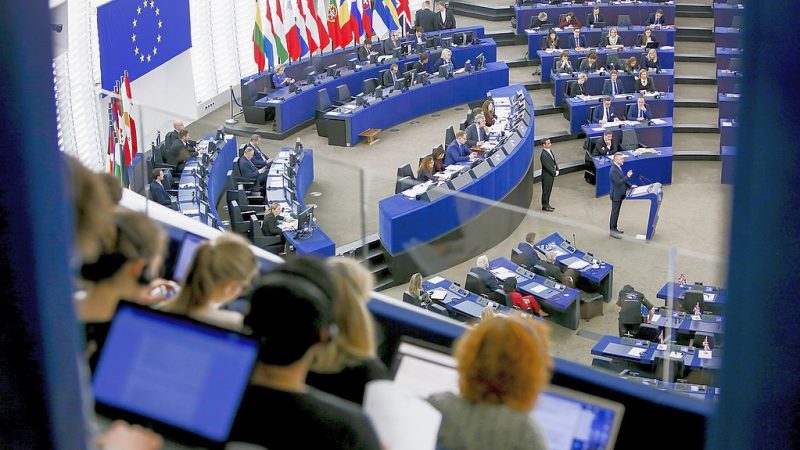Nyheter
New European Parliament starts solving its power-sharing puzzle

Political groups in the new European Parliament have started carving up the top jobs ahead of next week’s inaugural session. At an internal meeting held on Wednesday (26 June), each political group stated their first choices for positions of chairs and vice-chairs on the Parliament’s 20 committees.
EURACTIV has seen the internal document with the first political make-up of high-level roles in the next Parliament.
The centre-right European People’s Party (EPP), which has won the most seats, claimed for itself the head of two top committees, the Foreign Affairs Committee (AFET) and Industry (ITRE), as well as Culture (CULT), Development (DEVE), Constitutional Affairs (AFCO), Petitions (PETI) and Budgetary Control (CONT).
Each political group alternately picked the designated candidate for running each committee and sub-committee, starting from the biggest delegation (EPP) and strictly applying the d’Hondt formula.
Each committee will elect in its constitutive meeting a chair and up to four vice-chairs, who will together form the committee Bureau. This means that a candidate informally assigned to chair a committee using the d’Hondt method can be voted down by the same members.
Furthermore, winning the Parliament presidency could also affect the compromise agreement to distribute the chairs.
Yet, if most relevant political groups apply a cordon sanitaire against the nationalist group Identity and Democracy (ID), this could leave other high-level positions vacant.
An EPP source told EURACTIV that the German CDU delegation usually takes the AFET committee, pointing to recent chairs Elmar Brok and David McAllister.
Meanwhile, the Industry committee could go to the outgoing president of the European Parliament Antonio Tajani, who served as Industry Commissioner in the Barroso II Commission. The Committee was been chaired by former Parliament president, Jerzy Buzek, in the last legislature.
A veteran MEP confirmed to EURACTIV that Tajani could have a future as the chair of the Industry Committee, “if he’s not re-elected as a chair of the Full House.”
The socialists (S&D) asked for the head of ECON, which could go to Roberto Gualtieri again, International Trade (INTA), Justice and Civil Liberties (LIBE) and Women’s Rights (FEMM) committees and the Human Rights sub-committee (DROI).
The liberals of Renew Europe (RE) are seeking a big committee like Environment and Health (ENVI) that should go to the French Pascal Canfin, and the smaller one dealing with Fisheries (PECH) that will probably go the experienced British Chris Davies or to French oceanographer Pierre Karleskind, as well as the chair of the Defence (SEDE) subcommittee that should be chaired by the French Nathalie Loiseau.
The fourth biggest group, the Greens, wants to again chair the Transport (TRAN) committee plus the Internal Market (IMCO).
The newly-formed right-wing group Identity and Democracy (ID) picked two relevant committees chair – Agriculture (AGRI) and the Legal Affairs JURI committee.
However, it seems that the other groups are ready to apply the so-called cordon sanitaire against them to prevent the far-right group from taking key posts in the Parliament, a tactic that has been used in the past. Some socialist MEPs confirmed this and centre-right sources didn’t deny it.
It also means that these two high-level jobs could be up for grabs, if the designated ID candidates for the chair positions are voted down by their respective committees.
The Conservatives (ECR) have asked for the Budgets committee (BUDG), which will have a crucial role in dealing with the multiannual financial framework (MFF), the EU’s long-term budget, and Employment (EMPL).
Leftists of GUE/NGL will propose the Reunionese Younous Omarjee as the chair of the REGI committee, a GUE source told EURACTIV.
Källa: Euractiv



